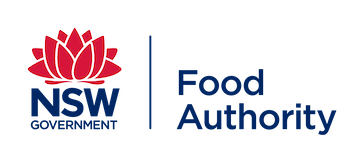Recalls
Any food that poses a safety hazard to consumers is removed from sale, distribution and consumption. This is called a 'food recall'.
When is food recalled and when is it withdrawn?
Food is recalled when it poses a possible public health and safety risk to consumers.
A product may be withdrawn from sale for 2 reasons:
- the product has a quality defect (eg. colour or texture), is underweight, or has labelling irregularities but does not pose a potential risk to public health and safety
- as a precaution, stock may be withdrawn from distribution and/or sale pending further investigation - if a risk to public health and safety is established, the product must be recalled.
Who is responsible for recalling a food product?
Food Standards Australia New Zealand (FSANZ) nationally coordinates the recall of foods that pose a health and safety risk to consumers. The NSW Food Authority coordinates food recalls within NSW. The Food Authority has the power to mandate a food recall if required.
Most food recalls are voluntarily initiated by businesses when food production monitoring has identified a fault or in response to public complaints. The Food Authority may initiate food recalls following the investigation of reported foodborne illness incidents or complaints about the safety of food.
Should a concern be serious enough to warrant a food recall, the Food Authority’s Recall Coordinator will work with the manufacturer to ensure the recall is effectively conducted and will coordinate the recall with other state and local authorities to prevent the food being distributed and sold.
Types of food recalls
The type of recall depends on the type of product, where it is sold and the reason for the recall.
Trade level - involves recovery of the product from distribution centres and wholesalers and may also involve hospitals, restaurants and other major catering establishments, and outlets that sell food manufactured for immediate consumption or food that is prepared on the premises.
Consumer level - involves recovery of the product from all points in the production and distribution networks/chains including any affected product in the possession of consumers.
Company instigated recall - where the manufacturer or importer initiates a food recall
Mandatory recall - where the CEO of the NSW Food Authority directs the manufacturer/importer to recall a food product.
Current food recalls
Details of recent national consumer level food recalls for products available:
- in NSW can be found on the Food Authority's list
- Australia-wide, can be found on the FSANZ Food Recall page.
The FSANZ recall page also provides contact information for all state and territory recall coordinators.
Business obligations around food recalls
Under Standard 3.2.2 12 (Food Safety Standards), a manufacturer, wholesaler or importer must:
- have in place a system to ensure the recall of unsafe food
- set out this system in a written document and make this document available to an authorised officer upon request
- comply with this system when recalling unsafe food.
For step-by-step guidance on how a recall should progress please refer to the product recall process flowchart:
- Product recall withdrawal process flowchart (PDF 39 KB) 1
For help developing a food recall plan see the FSANZ guideline:
It has a step-by-step guide to developing a food recall plan and covers all the steps a business must take when recalling or withdrawing a product. To obtain a printed copy contact FSANZ on 1300 652 166 or advice@foodstandards.gov.au
Templates to report the recall to FSANZ, detail the product's distribution and create a press advertisement and more information are available on FSANZ's food recall web pages.
If you are considering a possible recall of food produced or distributed by your business, you should contact the Food Authority’s Investigation and Recall Coordinator on 1300 552 406.
1Product recall withdrawal process flowchart provided by the Australian Food and Grocery Council.
